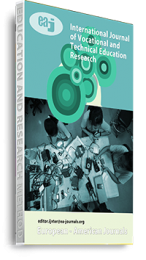This study explores the integration of Artificial Intelligence (AI) into Technical Vocational Education and Training (TVET) assessment systems in Nigeria, focusing on how AI can enhance creativity, innovation, and problem-solving among students. Traditional assessment methods in Nigerian TVET institutions have been found to inadequately evaluate 21st-century competencies, particularly in areas such as innovation and creative thinking. The research employed a descriptive survey design using a structured questionnaire administered to 285 respondents, including educators, students, and ICT personnel. Findings revealed moderate effectiveness of current assessments in capturing technical skills and a significant gap in evaluating creativity and innovation. While 57.9% of respondents were aware of AI in education, confidence in using AI tools remained moderate. Key AI technologies such as adaptive testing, learning analytics, and automated grading were widely recognized and positively perceived. However, challenges such as poor infrastructure, limited training, high implementation costs, and resistance to change were identified as major barriers. Despite these, respondents highlighted several opportunities AI offers, including real-time feedback, personalized learning, and improved assessment accuracy. Respondents also emphasized the need for targeted support such as training, digital infrastructure, policy frameworks, funding, and collaboration with tech providers. The study concludes that AI integration in TVET assessment holds substantial potential to modernize educational practices and better prepare students for the demands of an innovation-driven workforce, provided that strategic implementation and capacity-building measures are in place.
Keywords: Artificial Intelligence, Creativity, Innovation, Nigeria, TVET assessment, personalized learning

